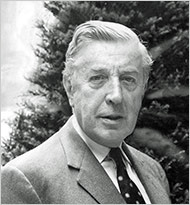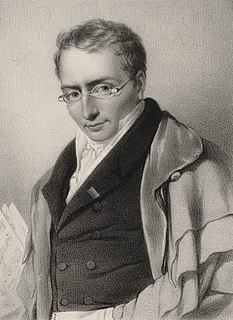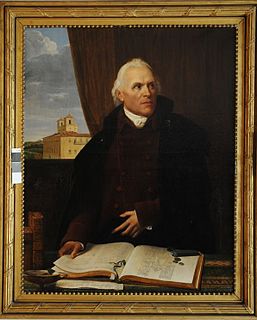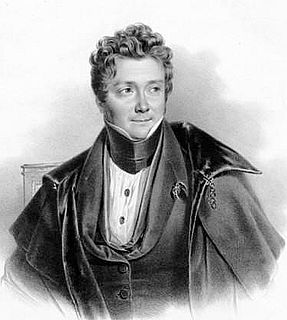Adrien-Joseph le Valois d'Orville, real name Adrien Joseph de Valois, (paroisse Notre Dame des Champs in Paris, 8 June 1715 – 1780) was an 18th-century French librettist. The son of Adrien de Valois and Marie Suzanne Durand de Linois, he married Geneviève Chapelon with whom he had two children, Alexis et Victor.
He wrote several parodies of operas and tragedies, mainly for the Théâtre de la foire and the Opéra-Comique.
He is mostly known for his adaptation of the libretto of Platée , opera by Jean-Philippe Rameau who had acquired the rights from its original author, Jacques Autreau.

Alexandre Dumas, also known as Alexandre Dumas père, was a French writer. His works have been translated into many languages and he is one of the most widely read French authors. Many of his historical novels of high adventure were originally published as serials, including The Count of Monte Cristo, The Three Musketeers, Twenty Years After and The Vicomte of Bragelonne: Ten Years Later. His novels have been adapted since the early twentieth century into nearly 200 films.

Dame Ninette de Valois was an Irish-born British dancer, teacher, choreographer, and director of classical ballet. Most notably, she danced professionally with Serge Diaghilev's Ballets Russes, later establishing the Royal Ballet, one of the foremost ballet companies of the 20th century and one of the leading ballet companies in the world. She also established the Royal Ballet School and the touring company which became the Birmingham Royal Ballet. She is widely regarded as one of the most influential figures in the history of ballet and as the "godmother" of English and Irish ballet.

Daniel-François-Esprit Auber was a French composer and director of the Paris Conservatoire.

Étienne Nicolas Méhul was a French composer, "the most important opera composer in France during the Revolution". He was also the first composer to be called a "Romantic". He is known particularly for his operas, written in keeping with the reforms introduced by Christoph Willibald Gluck.

Adolphe Charles Adam was a French composer, teacher and music critic. A prolific composer for the theatre, he is best known today for his ballets Giselle (1841) and Le corsaire (1856), his operas Le postillon de Lonjumeau (1836) and Si j'étais roi (1852) and his Christmas carol "Minuit, chrétiens!".

Sir Frederick William Mallandaine Ashton was a British ballet dancer and choreographer. He also worked as a director and choreographer in opera, film and revue.

Louis Joseph Ferdinand Herold, better known as Ferdinand Hérold, was a French composer. He was celebrated in his lifetime for his operas, of which he composed more than twenty, but he also wrote ballet music, works for piano and choral pieces. He is best known today for the ballet La Fille mal gardée and the overture to the opera Zampa.

Adrien-François Servais was one of the most influential cellists of the nineteenth century. He was born and died in Halle, Belgium. He is one of the founders of the Modern Cellistic Schools of Paris and Madrid, which began with his friend Auguste Franchomme and his disciple Víctor Mirecki Larramat. His compositions are still being studied, performed and recorded all over the world.

François-Benoît Hoffman was a French playwright and critic, best known today for his operatic librettos, including those set to music by Étienne Méhul and Luigi Cherubini.

François-Adrien Boieldieu was a French composer, mainly of operas, often called "the French Mozart".

Platée (Plataea) is an opera in a prologue and three acts by Jean-Philippe Rameau with a libretto by Adrien-Joseph Le Valois d'Orville. Rameau bought the rights to the libretto Platée ou Junon Jalouse by Jacques Autreau (1657–1745) and had d'Orville modify it. The ultimate source of the story is a myth related by the Greek writer Pausanias in his Guide to Greece.
Jules-Adenis de Colombeau was a 19th-century French opera librettist, playwright, and journalist.

Io is an unfinished opera by Jean-Philippe Rameau in the form of a one-act acte de ballet. The date of its composition is unknown and it was probably unperformed during Rameau's lifetime. There is no overture or chorus and only a single dance. The score consists of recitative, arias and vocal ensembles.
Henri Valois or in classical circles, Henricus Valesius, was a philologist and a student of classical and ecclesiastical historians. He is the elder brother to Adrien Valois (1607–1692), who described his life in a biography, which is the basis for all modern biographies of Henri Valois.

Albert Grisar was a Belgian composer, mainly active in Paris.

Pierre-Adrien Pâris was a French architect, painter and designer.

Adrien (Hadrian) is an opera by the French composer Étienne Méhul. The libretto, by François-Benoît Hoffman, is closely based on Metastasio's Adriano in Siria. Written in 1791 and intended for performance at the Paris Opéra in 1792, the work was caught up in the turbulent political climate of the French Revolution and banned until 1799.
Martin-Joseph Adrien was a French operatic bass.

Louis-Barthélémy Pradher was a French composer, pianist and music educator.

Alexandrine Marie Agathe Gavaudan-Ducamel was a French opera singer who sang leading soprano roles at the Opéra Comique for over 20 years. Born in Paris with the surname "Ducamel", she later married the tenor Jean-Baptiste-Sauveur Gavaudan after which she generally performed under the name Madame Gavaudan. She retired from the stage in 1822 and spent her later years in Passy where she died at the age of 68.